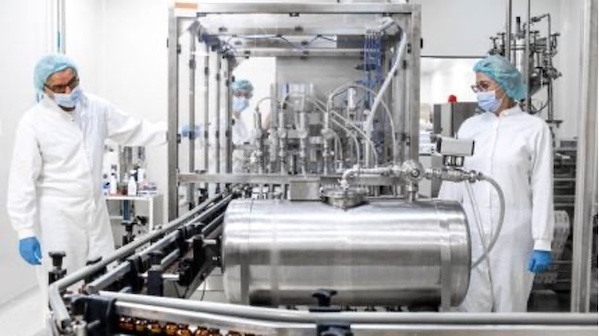German CDMO outlays $980m on GLP-1 manufacturing expansion
July 19, 2024
Source: drugdu
 264
264
 German contract development and manufacturing organisation (CDMO) Corden Pharma announced a €900m ($980m) investment to expand its diabetes drug manufacturing capabilities, as shortages persist around the world.
German contract development and manufacturing organisation (CDMO) Corden Pharma announced a €900m ($980m) investment to expand its diabetes drug manufacturing capabilities, as shortages persist around the world.
The company declared that the investment would be used over the next three years to expand its peptide manufacturing capabilities at sites in Colorado, US, and Europe. The facilities will have a particular focus on GLP-1 peptide manufacturing, as the demand increases. In a 16 July press release, the company spoke of multiple long-term contracts worth more than €3bn with potential benefits.
Last year, the company signed a major deal with Eli Lilly to manufacture the active pharmaceutical ingredient for its leading obesity drug Mounjaro (tirzepatide), as per a Reuters report. In January 2023, the company also shared the signing of a $1bn multi-year agreement to manufacture a large volume peptide with an undisclosed company.
The latest investment will be used to construct a greenfield site for large-scale peptide manufacturing. These plans, alongside previous expansions made this year, aim to help Corden achieve its $1bn 2028 sales target. Other companies such as Aurisco Pharmaceutical and Novo Nordisk have also made major investments in their peptide manufacturing plants to meet the growing demand for GLP-1 receptor agonists.
Over the years, GLP-1 receptor agonist therapies have taken over the diabetes and weight loss fields, delivering significant financial success for several companies. Novo Nordisk’s type 2 diabetes therapy Ozempic (semaglutide) earned the company approximately $14bn in global sales last year while Eli Lilly’s Mounjaro (tirzepatide) amassed $5.16bn in global sales in 2023. GlobalData’s consensus forecasts predict that global sales for the therapies could reach $22.43bn and $27.42bn in 2030 respectively.
“Despite our collective efforts the [GLP-1 receptor agonist] shortages continue and there are no instant solutions, and we don’t expect them to be resolved this year,” said Emer Cooke, the European Medicines Agency’s (EMA) executive director, in a 26 June statement. Due to this, the agency released actions to tackle the shortage, asking EU member states to work with drug manufacturers to control and improve the distribution of the drugs.
The agency has also planned a real-world data study, with Darwin EU, to assess how the medicines are being used in real life. The EMA’s Medicine Shortages Single Point of Contact Working Party also advised companies to increase their manufacturing capacities and implement awareness campaigns for the therapies.
Other major organisations such as the World Health Organization (WHO) and the US Food and Drug Administration have also spoken out against the supply shortages. Amid the supply issues, WHO warned patients to stay away from falsified GLP-1RA products.
https://www.pharmaceutical-technology.com/news/german-cdmo-outlays-980m-on-glp-1-manufacturing-expansion/?cf-view
Read more on
- Gan & Lee Pharmaceuticals’ new PROTAC drug GLR2037 tablets have been approved for clinical trials to enter the field of prostate cancer treatment March 3, 2026
- AideaPharmaceuticals plans to raise no more than 1.277 billion yuan through a private placement to focus on the global clinical development of innovative HIV drugs March 3, 2026
- Giant Exits! Its Star Business Acquired March 3, 2026
- Focusing on cardiovascular and cerebrovascular diseases! OpenMediLead Medical Intelligence Dual Engines Launch Internal Testing, Connecting Drug Development and Clinical Diagnosis in a Closed Loop March 3, 2026
- Innovent Biologics Announces Approval of New Indication for BTK Inhibitor “Pitubrutinib” in China March 3, 2026
your submission has already been received.
OK
Subscribe
Please enter a valid Email address!
Submit
The most relevant industry news & insight will be sent to you every two weeks.



